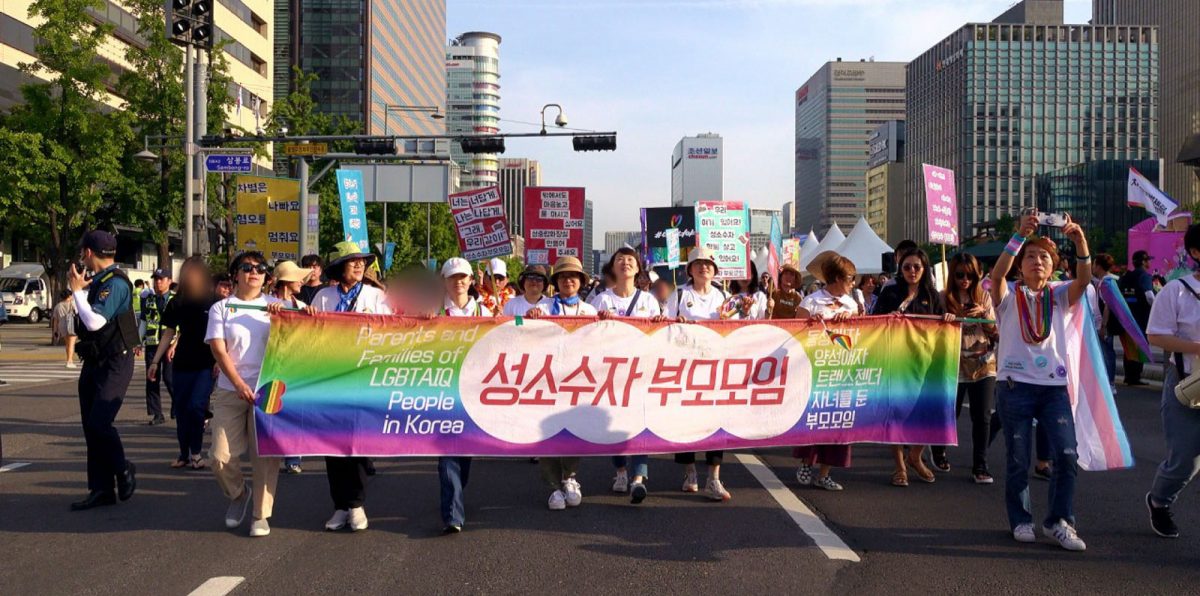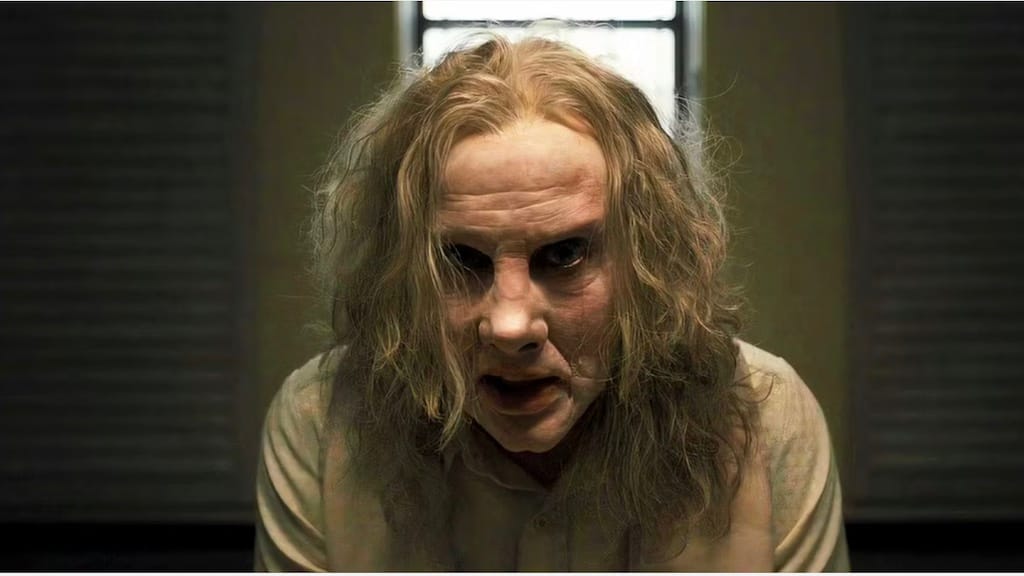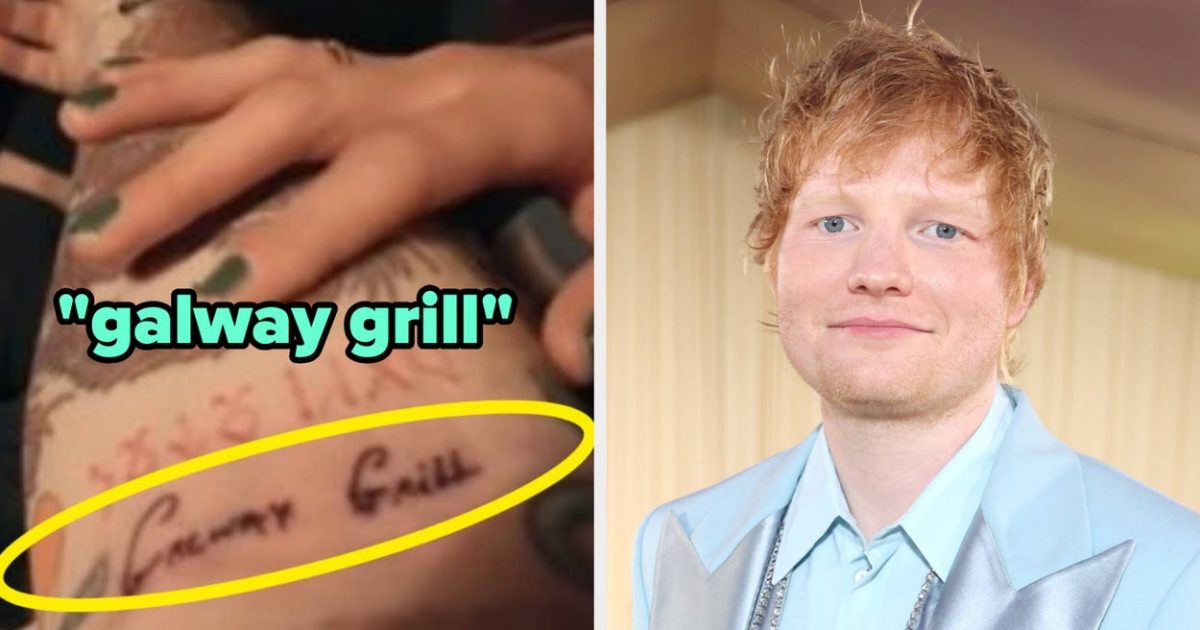
Coming to You Featured, Reviews Film Threat
Mar 23, 2024
Korean documentary Coming to You gives the viewer a hard look at what it is like to be anything other than cisgender and heterosexual in a society with extremely narrow cultural definitions of gender and romantic relationships. Director Gyuri Byun focuses explicitly on the lives of the parents of LGBTQ+ children in that repressive country. Interestingly, this is South Korea, not North Korea, which is even more conservative. Equality tracking website Equaldex states, “It has been reported by The Korean Times that North Korea has executed a lesbian couple for being influenced by capitalism and bringing corruption of public morals.”
Coming to You follows the lives of Nabi, a firefighter, as she struggles to accept her transgendered child Hankyeol and Vivian, a flight attendant whose son Yejoon comes out to her as being gay. The trauma experienced by the two caring mothers, as well as others included in the doc, is real and heartbreaking. They begin in disbelief as they are compelled to see beyond their own experience and understanding of the world. Korea, we learn, is a society where social and political standing arises from a traditional family unit. While it isn’t illegal to be gay or trans there, it’s not widely accepted either. Gay marriage is still illegal.
Vivian and her son Yejoon have an affectionate relationship, and there’s never any question that she will ultimately stand behind him. He moves for a time to Canada, thinking he’ll be accepted there. While that proves true, he still struggles greatly with culture shock and moves back to his beloved Korea despite facing a lack of acceptance and understanding there. Vivian never flinches as Yejoon goes through these changes.
Things are more difficult for Nabi, who is a matter-of-fact person and a salty long-time firefighter. She is accustomed to life having set standards and mores, and her world is rocked when the child she’d always seen as her daughter comes to her and says they want surgery to have their breasts removed. It’s a much harder transition to acceptance. At one dark moment of reflection, she discusses the option of assisted suicide for Hankyeol if things get too rough.
“…focuses explicitly on the lives of the parents of LGBTQ+ children in that repressive country.”
As Vivian and Nabi deal with their children’s transformations, they, too, transform bravely and selflessly, becoming ardent advocates for all children and parents in the LGBTQ+ community. They attend parades and meetings to speak out. They do what mothers have always done: they protect their young at great cost to themselves. Their progress in the film illustrates that with a deep enough personal connection at stake, people can change old ideas and beliefs.
For a Western viewer, the film is challenging. There is a language barrier, where the subtitles don’t convey the nuance of the language, and a cultural barrier for those not intimately familiar with Korea. It is, however, worth the effort. Coming to You pulls back the curtain on these struggles without becoming too preachy or maudlin. Byun shows the events as they happen, allowing viewers to react without propagandizing.
Ultimately, the story evolves into an introduction to the PFLAG LGBTQ+ support organization in Korea… joining is a bold and subversive act on the part of the parents supporting their children. Their public gatherings are met with hate-filled protests. We’ve seen similar vitriol aimed at people in America as racist and homophobic forces gain the social and political power they have been striving for. Korea is progressing, albeit slowly, while the U.S. slips back into blind hate. Byun is giving us a glimpse of a possible future.
This film is a stark look at how this deeply traditional conservative society treats a vulnerable, marginalized group of people. It’s not pretty, but it’s necessary to see where they are and to extrapolate what needs to happen to bring equality to all. The question looming over the issue is this: if a society only welcomes people who adhere to a very narrow definition of mores and social structures, then what happens to those who are different? How dull and awful would the world be?
Publisher: Source link
"We Despised Each Other So Much That It Read As Love": 13 Costar Duos Who Did NOT Get Along
Diane Kruger said, "It kind of sucked. He's dead, so I can say that. But he wasn't the most pleasant person."View Entire Post › Disclaimer: This story is auto-aggregated by a computer program and has not been created or edited…
Dec 25, 2024
19 Best Experience Gifts for Everyone on Your List
Our writers and editors independently determine what we cover and recommend. When you buy through our links, E! may earn a commission. Learn more. As the holidays approach, the last loved one on your list is usually the hardest person to…
Dec 25, 2024
Celebs With Embarrassing Tattoo Mistakes Revealed
If read vertically from top to bottom and horizontally from right to left, which is how Japanese is read, the tattoo translates roughly to say "ring seven fingers." However, if the tattoo is read horizontally from left to right and then…
Dec 24, 2024
Bruce Willis’ Wife Emma Shares Family Photos Amid His Health Battle
Bruce Willis’ wife Emma Heming Willis is cherishing the good times. Almost two years after the Die Hard actor’s wife, his ex-wife Demi Moore, and his kids Rumer Willis, 36, Scout Willis, 33, Tallulah Willis, 30, Mabel Willis, 12, and Evelyn Willis, 10, announced that…
Dec 24, 2024











